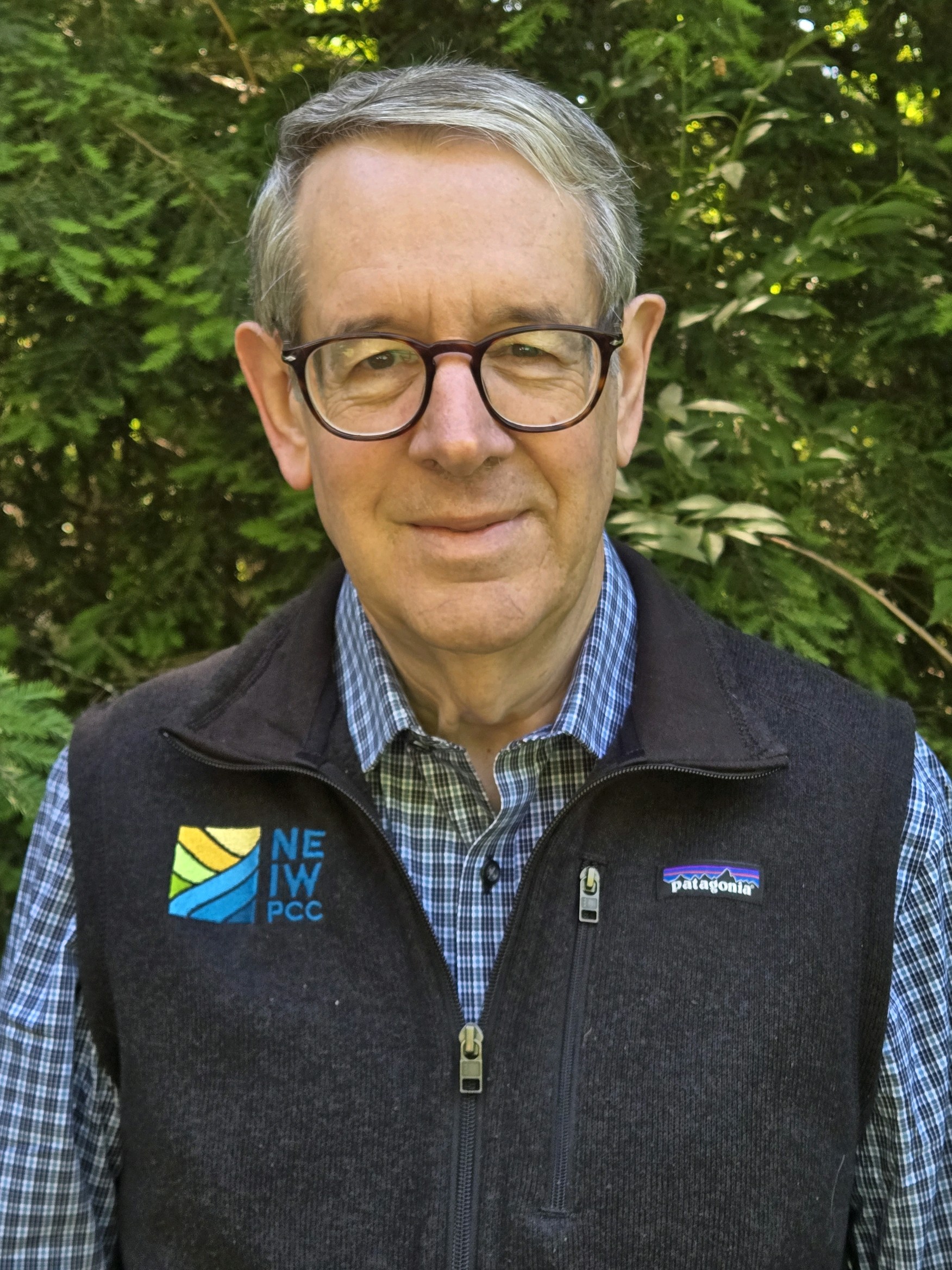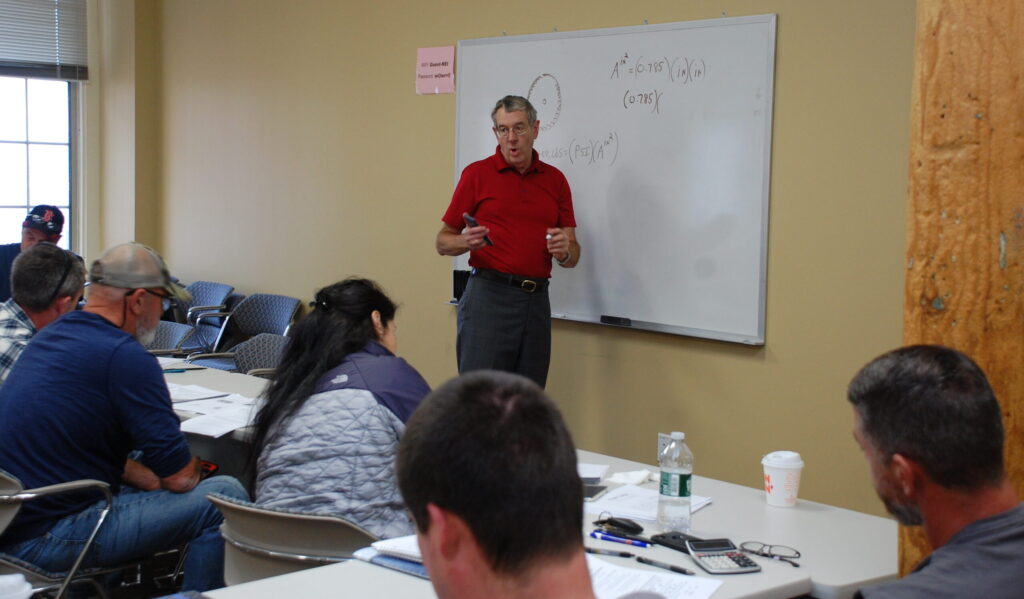By Beth MacBlane
Over the course of Don Kennedy’s multi-decade career, he enthusiastically taught thousands of operators about industrial wastewater treatment and collection systems throughout the Northeast. Kennedy began working as a wastewater training specialist at NEIWPCC in 1999, leading single and multi-day courses on all aspects of operations and maintenance of treatment facilities.
“Despite my long career, I actually fell into the wastewater industry,” he admits. “I studied to be a teacher but could not find a teaching job after graduating from college, so I took a position working at a treatment facility and ended up loving it.” Kennedy worked at the Raytheon industrial wastewater treatment plant in Lowell, Massachusetts and the Greater Lawrence Sanitary District in North Andover, gaining first-hand knowledge of the treatment process before joining NEIWPCC.

“Don is well-versed in all things wastewater and a valuable asset to our training team,” said Christina Stringer, director of Wastewater and Onsite Programs. “He brings so much personal experience into his teaching that he is instantly relatable and respected. He is also great at getting folks to participate and be engaged throughout his courses.”
Kennedy’s teaching repertoire currently includes in-person and live virtual courses covering basic and advanced industrial wastewater. Some of these trainings are topic-based, such as pH neutralization and solids handling, while others are more extensive exam preparation classes, equipping students with the knowledge needed to pass wastewater operator exams.
He also teaches courses on specialized topics including electricity, motors and horsepower; pumps and hydraulic principles; and wastewater safety – such as wastewater risks and hazard communication.
“Don’s vast industry and teaching experience blend seamlessly,” said student Evan Redden, an environmental scientist at the engineering consulting firm, Kleinfelder. “Don is very good at making his trainings interactive and holding the listeners attention.”
Kennedy, having combined his passion for wastewater and teaching, enjoys seeing his students learn to solve problems through his courses. “The operators are a good group to work with – they are dedicated and down to earth. It is also very fulfilling to do something that benefits the environment and helps to clean water, a precious resource.”
As a trainer, Kennedy travels throughout New England and New York to teach, exposing him to a variety of treatment plants and training and treatment systems. Along the way, he has amassed first-hand knowledge about the systems and challenges at particular facilities and collected “war stories” from operators to infuse in his courses. He says this variety keeps his job interesting and engaging.

“I always tell my students that there is something for everybody in wastewater treatment,” said Kennedy. “There are many different avenues that you can go in with mechanical, electrical, biological and chemistry components of treatment.”
Over the course of his career, Kennedy notes the obvious technological advances he has witnessed as well as a few less apparent changes. “When I began teaching it was difficult to find a comfortable place to hold trainings, and you had to haul all your equipment from location to location,” recalls Kennedy. Now, many wastewater treatment plants are designed to include conference and meeting spaces well-suited for classes like his.
Kennedy also describes how communities have become more aware of the clean water cycle. “Early on in my career – really the infancy of wastewater treatment – the general public often had no idea what a wastewater treatment plant was,” he said. “I remember telling people where I worked, and they had no idea what wastewater even was. Now, a lot has changed for the better.”
Kennedy has been a key figure in this transformation, raising the expertise and professionalism of the industry through his trainings and encouraging the next generation of operators.
“If I had to do it over again, I would not think twice about going into wastewater,” he adds.
His enthusiasm and talent for teaching has not gone unnoticed. For his many years of service and dedication to the wastewater industry, Don Kennedy received the U.S. Environmental Protection Agency (EPA) New England Lifetime Achievement Award in 2020. That same year he was honored with the New England Water Environment Association’s James J. Courchaine Collection Systems Award, which recognizes the members “outstanding efforts in the operation, maintenance, management or design of a wastewater collections system.”
This article was originally published in the Fall 2024 edition of Interstate Waters magazine. Beth MacBlane is an information officer with NEIWPCC’s Division of Communications and Outreach.